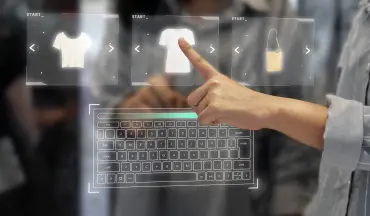Taking Your Dealer Management System to The Next Level
The dealership is one of the key components of the retail selling system. From CRM services to loan software development, our certified developers are capable of providing a complete range of tailor-made dealership management solutions that facilitate new functionalities along with streamlined integration with the existing systems and domain-specific development.
Dealership Management Systems
Custom Dealer Management Systems integrated with software for Buy-Here-Pay-Here (BHPH), accounting, and collections management for facilitating instant calculations of profit and loss, taxes, fees, registration, and more.
Dealership CRM Services
Dealer CRM solutions such as (CRM) platforms, content management systems, and marketing automation tools that empower dealerships with omni-channel marketing optimization across the entire sales channels.
Showroom Management Solutions
Reliable and feature-rich customer counting and tracking, sensor-based hardware tracking, and inventory tracking software for integrated showroom management across multiple locations and franchises.
Showroom Inventory Management Software
Powerful inventory management software solutions which include inventory management for new and existing products, decoders, list creation, database creation and migration, and buyers’ guide databases.
Loan Origination Software
Custom Loan Origination Software with the requisite compliance algorithms, robust Electronic Funds Transfer channels, CMS tools, risk assessment engines, multi-channel triggers, and credit bureau portals integrations.
Dealership Compliance Software
Advanced dealership compliance software with integrated modules for payment platforms and collections management; the modules are customized to comply with Red Flag and Risk-Based Pricing Rules.
Dealership Management: Empower Your Business with Tech-Driven Solutions
Experience the future of tech-driven solutions with our enhanced IT services crafted for dealership management. Utilize the power of advanced dealership management solutions to manage operations. Make sure to implement seamless integration with our dealer management system software. Where you can maximize efficiency and productivity with our innovative dealer management services.
Advanced Dealership Management Solutions
Real-time Insights
Improve Customer Engagement
Access Round-the-clock Support
Cutting-edge Dealer Management Software Solutions

- 100%
Client satisfaction
- 2X
Mobility tracking
- 10K+
Applications build
Dealership Management: Empowering Your Success
Discover our value-driven solutions crafted to enhance your dealership management experience.
Success Stories

Dealer Onboarding System for Hero MotoCorp to Enhance User ExperienceOrangeMantra built a user-friendly solution to digitize dealer management across pan-India operations. The implementation of the Dealer Onboarding System successfully addressed Hero Motors’ challenges, providing a streamlined and efficient onboarding process. The solution enhanced the user experience and contributed to improved operational efficiency. As a result, client is better positioned to adapt to the changing market needs and provide a superior experience to its dealerships.
Explore Our Case Studies
Dealer Management System for a German Automotive Leader We designed and developed a custom enterprise solution that enables the German car maker to seamlessly manage dealerships across India. Client with the use of Dealer management systems was able to manage a network of dealers effectively. It is almost impossible to run the business with the new workflow. However, the complexity was removed off from the process. Simplifying the process with DMS also helped the business to focus on sales and customer engagement.
Explore Our Case Studies
Our Reputed Clients
Tech Stack for Dealership Management Solutions
We use cutting-edge technology for your business's growth
-
FrontEnd
React.js
Angular
Vue.js
HTML5/CSS3
Bootstrap
-
Backend
Node.js
Django
Express.js
Spring Boot
Ruby on Rail
-
Frameworks
.NET Core
Laravel
Flask
Symfony
ASP.NET MVC
-
Database
MySQL
MongoDB
PostgreSQL
SQLite
Redis
Enhance Your Dealership Management Today!
Helping you to take the initial steps that can take you towards success. Schedule a demo and get cutting-edge solutions for your business to propel. We are working to enhance your business in every step.
Contact Us Now to Get Started!-
10+
Countries Served
-
15+
Awards Won
500+Projects Delivered
1000+Happy Clients
Drop A Message; We'll Reach Out to Explore Your Digital Requirements Together. Let's Shape Your Online Success Collaboratively
Let’s Get StartedWhat our Clients Say

Since implementing their dealership management solutions. The overall operations turned smooth. The team's expertise and support integration have truly transformed the way we used to do business. Highly recommended!
- John D., Dealer Owner
Thanks to their trained dealership management system, we've seen a huge increase in productivity. Also, efficiency in all the departments.
- Sarah L., Operations Manager
We are really amazed by how seamless their overall online dealership management system gets with our existing processes. The results have been amazing, and our customers couldn't be happier!
- Michael P., Sales Director














 React.js
React.js  Angular
Angular  Bootstrap
Bootstrap Node.js
Node.js Express.js
Express.js Spring Boot
Spring Boot .NET Core
.NET Core  Laravel
Laravel  Flask
Flask Symfony
Symfony ASP.NET MVC
ASP.NET MVC MySQL
MySQL  PostgreSQL
PostgreSQL SQLite
SQLite Redis
Redis


